How Youth Sailing Programs are Failing
Published on June 26th, 2018
What is our mission? It is a question every youth sailing program should ask. Ideally, the answer is to deliver a sustainable pathway toward a lifetime of sailing, but this noble initiative often goes sideways when the ego of parents or programs intervenes to create tomorrow’s rock stars.
Joe Cooper, who is highly involved in promoting sailing in the New England region, delivers this scathing report on our sport’s landscape.
If this essay bears a grumpy tone, let it be recognized that my own son was blown out of sailing by the emphasis on racing, the coaches continual screaming at him and having a capsize drill before he was ready for it or briefed let alone trained in it. It was a classic case of set up to fail.
Sailing is different than almost any other sport in the long-term view, largely because the bulk of the sailing population does not race, rather just goes sailing. And sailing is, arguably, a life-long, longer than almost any other sport.
From the physical capacity aspect, sport/activity life style, there aren’t too many 60, 70, 80-year old pick-up basketball, ice hockey, baseball or football competitors out there compared to the same cohort of sailors. Further, most sailors I know view sailing as a part of their lives, more than merely a sport.
It is absolutely necessary to instill in young sailors, at the “first time out” level that sailing is both fun, as an activity and there is a lot more to it than either racing or even sailing around the bay.
In a very real sense we, the sailing community, are selling sailing in a very competitive market, and yet we really do not know anything about this market. Just two examples: There is no after-session inquiry in the experiences of the kids and the parents; as far as I can tell there is not follow-up at all in the off-season.
I mentioned the idea of having such an after-action survey for parents and kids to a couple of folks involved in their club’s junior program and their response was, “what a great idea….” And the anecdotal reports of college sailors stopping sailing after college is on the order of the 85-95% range, and why this is so remains just a guessing game.
No one has any empirical data on it. Lacking this, how on earth can anyone begin to think about solutions? No one in their right minds would try to run a business like that and make no mistake sailing is also a business.
Consider also the aging out of Yacht Club populations, the conversion to the Dark Side (power boats-Hinckley picnic boat sales are vast) and boat yards and marinas. Go into any club or yard and count the number of people under 55 or so. The Rhode Island Marine Trades Association has identified a huge demand for marine techs over the next five years as masses of the old guard retire. IYRS has a 90+ percent placement record for their courses.
Apart from the overwhelming focus on finding the next Top Gun sailor, that is the fundamental driving force, as far as I can tell, behind all junior sailing, there are very few non-race-oriented opportunities that incorporate all the aspects of sailing: Seamanship, a fast arena of inquiry on its own, sailing somewhere, anchoring and going swimming off the boat, J/22s are a popular platform, in Narragansett Bay, for this kind of ‘goof off’ adventure sailing.
The idea of big boat, bigger than a J/22, sailing is sporadic at best and is only functioning around the country like osmosis, popping up here and there and driven by passionate locals. A not insignificant reef impeding this support is insurance for individuals bringing kids on their yachts. If (when) there is an accident, it is on the owner’s policy. If the program is through a YC, at least the club’s insurance policies had much more depth.
Fear of an accident is a real barrier to individuals boldly embracing the idea of bringing juniors out. AND if they do it is almost always for beer-can races. The idea of big boat coaching in a non-racing condition is almost unheard of, as far as I know.
The Storm Trysail Foundation’s Jr. Safety at Sea Seminars focus entirely on elements of sailing that, by and large, teenage sailors will not be required to use, if ever, for a long time. Yes, I get they are important aspects of sailing, (he said attempting to get in front of the heckles from STC members). I have run, and taught, the Jr. SAS Seminar in Newport (and at other locations and I instigated getting two new seminars off the ground in the past) for 10 years and the pressure to get all the items on the schedule ticked off in one afternoon of sailing excludes anything that focuses on simply the beauty of sailing, watching the scenery and the other boats, a seriously eye-opening experience in Newport, and enjoying the day.
And there is no way to follow on with after the one-day seminar. It is a one-day, one-time, opportunity with no organized progression of anywhere to go, (Long Island Sound is the only exception) unless undertaken by dedicated volunteers, to incorporate the participants into the volunteers sailing. Cf Insurance issues above.
There is no curriculum, actually employed, with a related skills-matching element, that coaches need to sign off that Johnny can do XYZ and if not find out why. US Sailing has a Big Boat curriculum book, which is very good, but apart from the one I have, I have never seen it on any other boat, even ones that have young sailors aboard.
Another potential barrier to the whole ‘big boat’ training issues is the for-hire discussion around USCG licensees. Sailors with the sailing skills and experience, the time, and the skills to teach PLUS having a license really dilutes the field of potential instructors and only so many people can do this for free as volunteers. This is something no other sport has to negotiate.
I have had discussions with Ralfie Steitz at the USMMA Sailing Foundation and could get a boat from them, for no cost, if the entity, almost universality a Yacht Club, running the program will cover the care and feeding of the boat. No sale – clubs I have pitched this to don’t want to commit money. Yet looking at some of the costs charged for a 4,5,6 week sailing summer camp fee, this sounds hollow to me.
This is how Young American Sailing Team, (now Young American Sailing Academy), got going, six years ago now, with the ‘fee’ from the kid’s families which was much cheaper than any yacht club program, funding the boat’s yearly budget-And yes with some help from the industry. And they DID take overnight trips with the Lasers, Dyer dinghies, SUP and windsurfers and just had fun.
If sailing is to stop its decline it must get new sailors, ideally young ones, excited and ‘hooked’ on sailing for life, the existing training channels need to be vastly improved. In the big picture this can only come from the top down, from US Sailing, and it is not, as far as I can tell. It seems to simply not be on their radar, at least as advertised on the reverse of my US Sailing membership re-up letter indicating all the things my membership money goes to help.
Subsequent to this re-up my membership letter a few weeks ago, I sent a couple of notes and a proposal, with follow up emails to US Sailing leadership and heard nothing back, even after conversations with principals. Unless the sport’s leadership takes on this development, establish Pathways, with at least as much grunt behind them as for the Olympics, the development of young sailors into life-long passionate sailors will continue to decline.
This is all a pity for many reasons, not the least of which is an interest in sailing for life is, these days, likely to outlive sailing’s participation in the Olympics, and certainly beyond school sailing once that diploma arrives.
Editor’s note: This report was initially published with a photo of an impressive program that has been introducing young sailors to the full girth of the sport. However, they requested the photo be changed and we agreed. Our apologies to anyone who saw the use of the photo in a manner other than it was intended, which was to highlight an organization delivering a diverse landscape for the next generation of sailors.


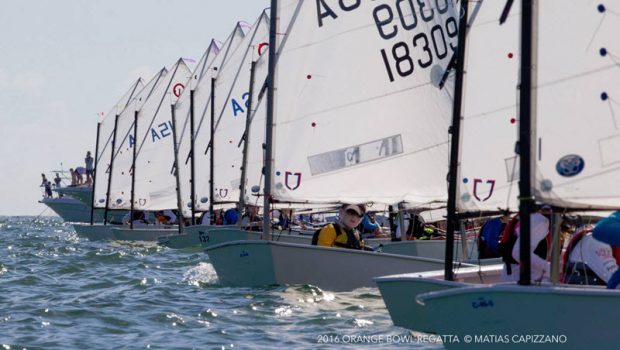
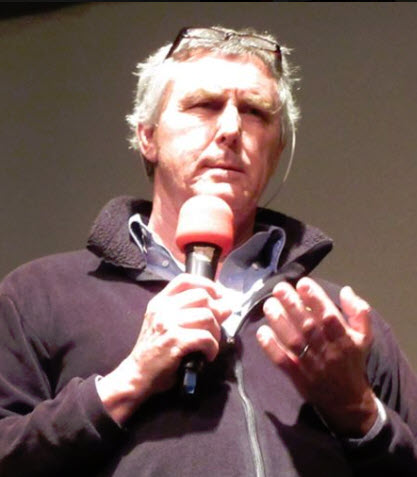

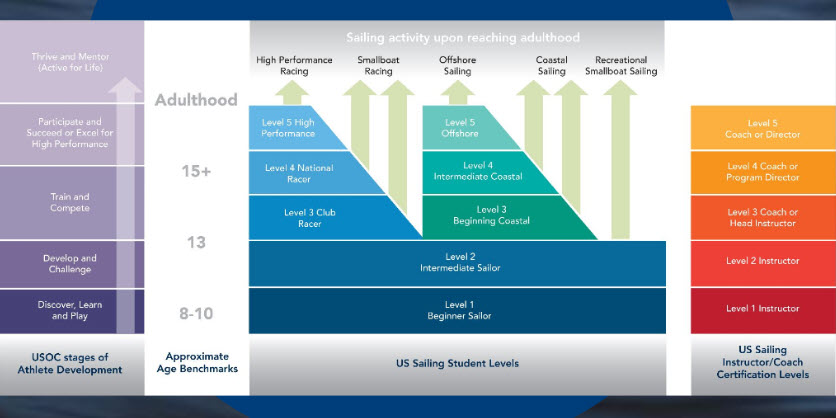

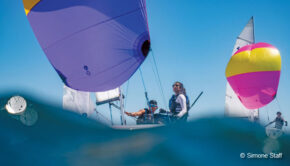


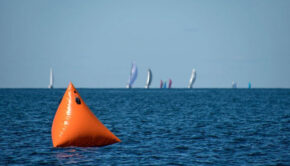
 We’ll keep your information safe.
We’ll keep your information safe.